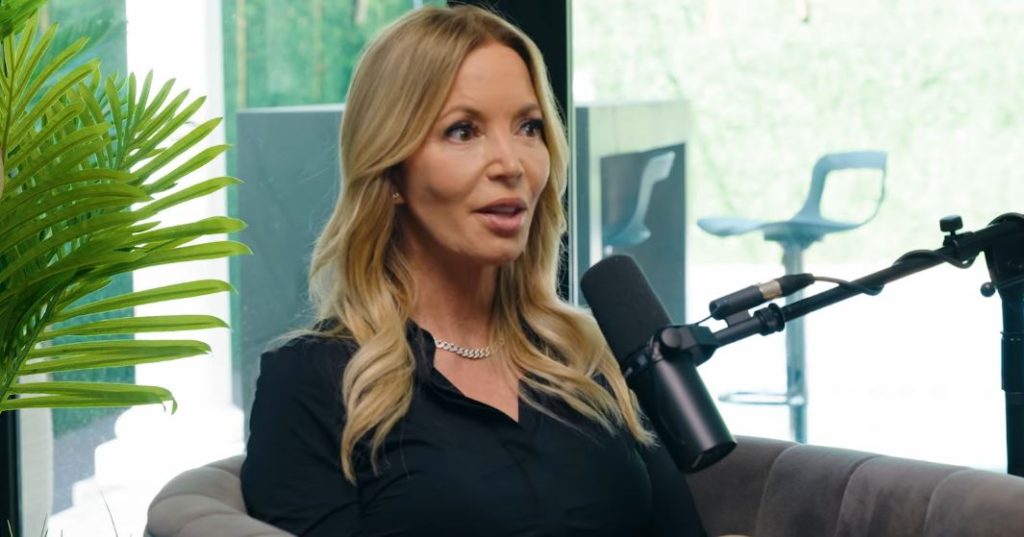After the historic $10 billion sale of the Buss family’s majority stake in the Los Angeles Lakers to longtime sports investor and TWG Global founder Mark Walter, the family’s financial situation saw a significant uptick. This deal, which is renowned for establishing a new standard for American sports teams, greatly increased the value of each sibling’s financial holdings, turning an already powerful family into a group of highly liquid billionaires.
For the Buss family, the Lakers have been more than just a company over the last forty years; they have become an identity. The Lakers developed a brand driven by storytelling, nostalgia, and excellent play during the legendary Showtime era and during their championship runs under Kobe Bryant and LeBron James. This brand, which was created under Jerry Buss’s especially creative ownership structure, combined basketball and spectacle, bringing celebrities from both entertainment and sports into one orbit. The Forum was as lively as a movie premiere, and courtside seats turned into status symbols.
Buss Family Financial and Professional Summary
| Detail | Information |
|---|---|
| Family Name | Buss Family |
| Legacy Founder | Dr. Jerry Buss |
| Original Lakers Purchase | $67.5 million in 1979 |
| 2025 Franchise Valuation | $10 billion |
| Buyer | Mark Walter (TWG Global) |
| Stake Sold | 66% |
| Retained Ownership | 18% (3% per sibling) |
| Proceeds Per Sibling | $1.025 billion (cash) + $300 million (stake) |
| Remaining Role | Jeanie Buss remains Governor of Lakers |
| Family Ventures | Real estate, Los Angeles Lakers, Women of Wrestling |
| Jeanie Buss Net Worth (2025) | Approx. $1 billion |
The sale’s timing, following years of cultural and financial significance, was especially advantageous. The Buss siblings were able to secure what industry insiders are referring to as the most profitable liquidity event in NBA ownership history by taking advantage of the market’s desire for marquee franchises and a buyer who already had a stake and interest. The arrangement of the agreement is particularly clear in that, even though power shifts, the family maintains a sizable minority stake, with Jeanie Buss maintaining her position as leader.
The founder of this empire, Dr. Jerry Buss, started out as a modest teacher with a background in chemistry. He used real estate as a launching pad as well as a source of income. He owned hundreds of rental properties throughout Los Angeles by the late 1970s. It wasn’t just audacious to spend $67.5 million in 1979 to buy the Lakers, the Kings, and the Forum; it was revolutionary. By 2025, that initial investment—roughly $300 million in today’s currency—had grown to $10 billion. Buss sold an experience rather than software, but the return is remarkably similar to tech unicorn exits.
Being incredibly adaptable, Jerry Buss wasn’t satisfied with just ownership. He surrounded himself with astute businesspeople, promoted risk-taking, and brought personality to operations. Through a family trust, his children later joined the team, and up until this particular sale, the business was still run by the family. The public manifestation of the internal dynamics is especially intriguing; the 2017 legal disputes between Jeanie and her brothers were a corporate metaphor for the succession issues that other family-run businesses face.
Since then, Jeanie Buss has established a unique leadership style in addition to holding her own. The Lakers won an NBA championship in 2020 under her direction, and the Hulu documentary series “Legacy” helped them become well-known in streaming culture. She also supported marginalized voices in sports entertainment as co-owner of Women of Wrestling, negotiating a broadcast agreement with Paramount that was significantly better than earlier agreements.
The acquisition of Mark Walter is not a break but a continuation. Walter, who is already well-established in Los Angeles sports thanks to the Dodgers, contributes financial support, organizational discipline, and international strategy. He positions himself as an owner of a variety of sports assets with his other investments, which include shares in Chelsea FC and motorsports businesses. According to industry watchers, this agreement could hasten innovation and cross-promotion, similar to how other conglomerates combined sport and entertainment to increase engagement.
This sale highlights how professional sports have grown to be incredibly valuable financial assets from a societal perspective. The monetization of franchises is more about long-term revenue than fandom, much like when private equity firms buy media shares. This sale is an important milestone for family-run sports teams because it captures the contemporary conflict between tradition and change, legacy and liquidity.
The net gain for each of the Buss siblings, which is estimated to be more than $1.3 billion when cash and equity are combined, opens up the discussion to a wider audience: What happens when old money turns into new liquidity? The Buss family has preserved brand association while converting cultural capital into spendable wealth, much like a business going public. This hybrid approach is especially creative and could serve as a model for other dynastic owners managing generational transitions.
The Buss family has preserved and unlocked the value of their legacy through strategic planning and astute timing. The franchise’s emotional bond endures because Jeanie Buss is still in charge. Despite being motivated by money, this decision was made with the poise and clarity that only a long-standing, deeply ingrained family can muster. The Buss family anticipated every move ten steps in advance, much like a chess grandmaster planning an endgame.


